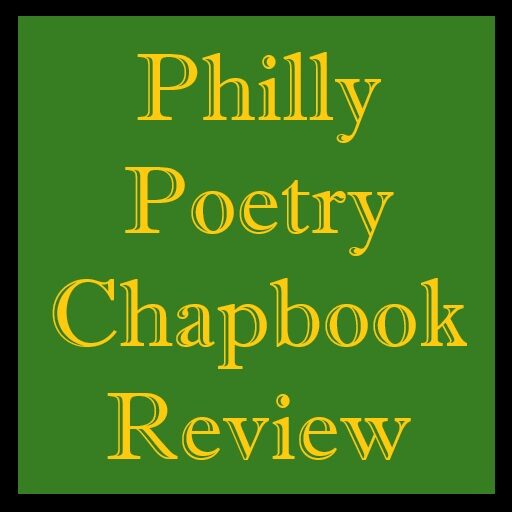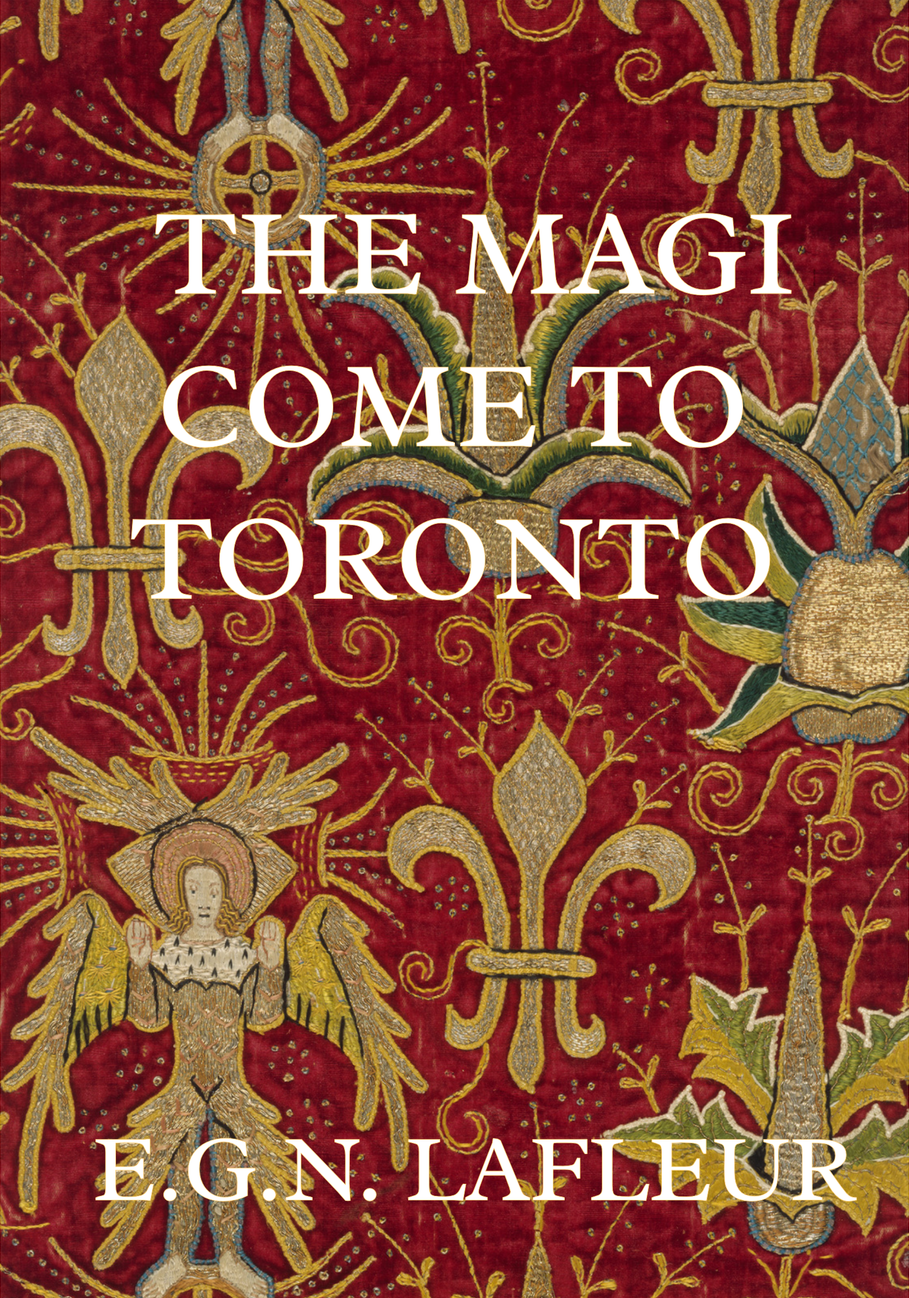Due to difficulties in obtaining information in advance of chapbook releases, chapbook listings for the previous month are published at the end of each month. This post contains information about poetry chapbooks that we know about published during November 2024.
Information, including product descriptions, is provided by the publisher and not a critical judgment. If we cover the book on this site, links will be included.
Kith Books
The Magi Come to Toronto, E.G.N. Lafleur
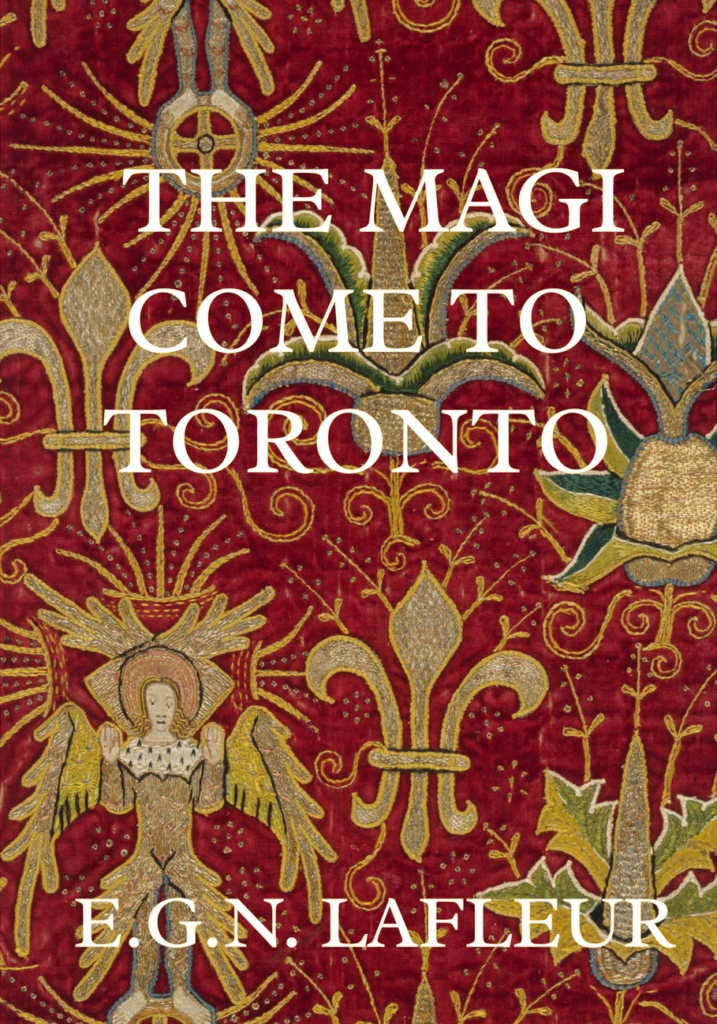
Thy holy cities are a wilderness… From honesty about the vagaries of the body’s desires to the cults of medieval saints to the streetcars and the Don river, Lafleur’s poems probe what it means to be a queer person of faith formed by Toronto – the eternal city’s – splendour and cruelty. In erotic, religious, and historical poems, Lafleur draws us back to the closeness of past and present, the compulsion of vocation, and the vast grace of the liturgical year.
Kernpunkt Press
The Articulations / Amouroboros, Amelia K., Elizabeth K. Switaj
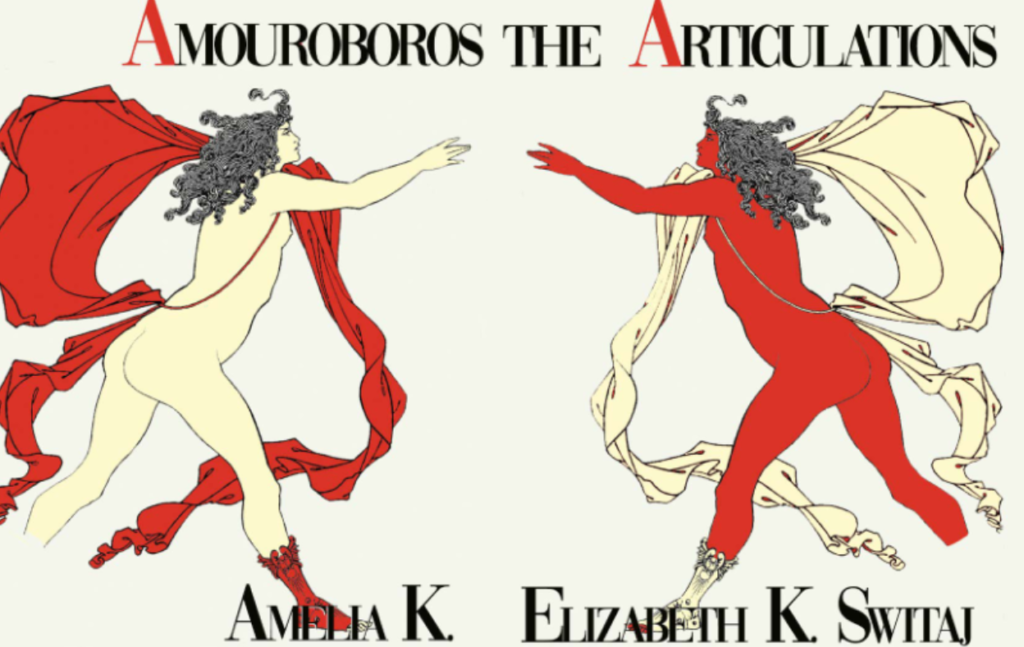
The Articulations / Amouroboros is a tete-beche, featuring work by two bisexual women. The Articulations (Elizabeth K. Switaj) explores ideas of the body through lines gleaned from medical texts written prior to 1910. Occupying the space between collage and erasure, these poems are a magpie-intelligence’s approach to understanding humanity and a neurodivergent self-fashioning. Insistent anaphora forms and re-forms bodily and linguistic structures. Amouroboros (Amelia K.) is a collection of journal entries written from 2012-2022, most of which were written in secret during an abusive relationship that ended in 2019.
Ugly Duckling Presse
The Month of the Flies, Mirtha Dermisache, Sergio Chejfec, (Tr.) Rebekah Smith, (Tr.) Silvina López Medin
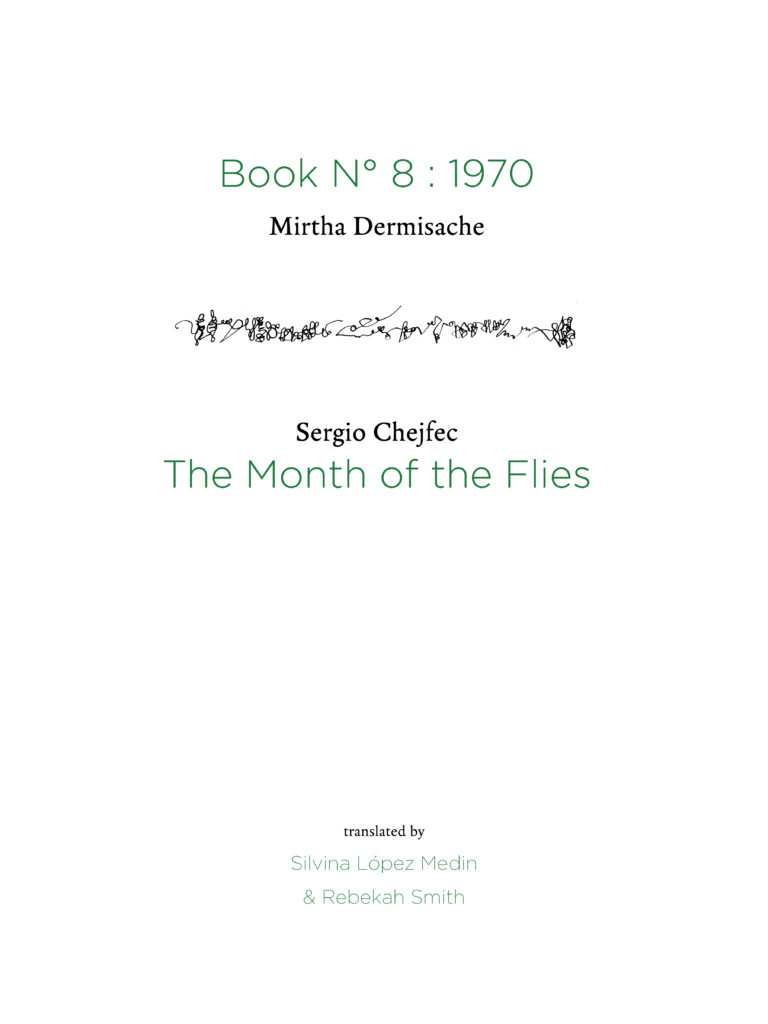
The Month of the Flies is Sergio Chejfec’s response to Mirtha Dermisache’s Book N ° 8: 1970. Here Dermisache’s book functions as the “original” from which Sergio Chejfec’s poetic text takes shape. Chejfec’s lines are dynamic, occupying the same space as each of Dermisache’s lines, as if using language to approach her visual frequencies. The spreads appear to establish a relationship of original and “translation,” but the project pushes against this reading, exposing the cracks in the legibility of such a “translation,” which, in its relation to Dernisache’s own “illegible writing,” could in fact be nearly anything else. This text, Chefjec writes, is something of an “arbitrary sequel” to a text which “both demands to be read, yet remains silent.
Against the Regime of the Fluent, Natasha Tiniacos, (Tr.) Rebeca Alderete Baca
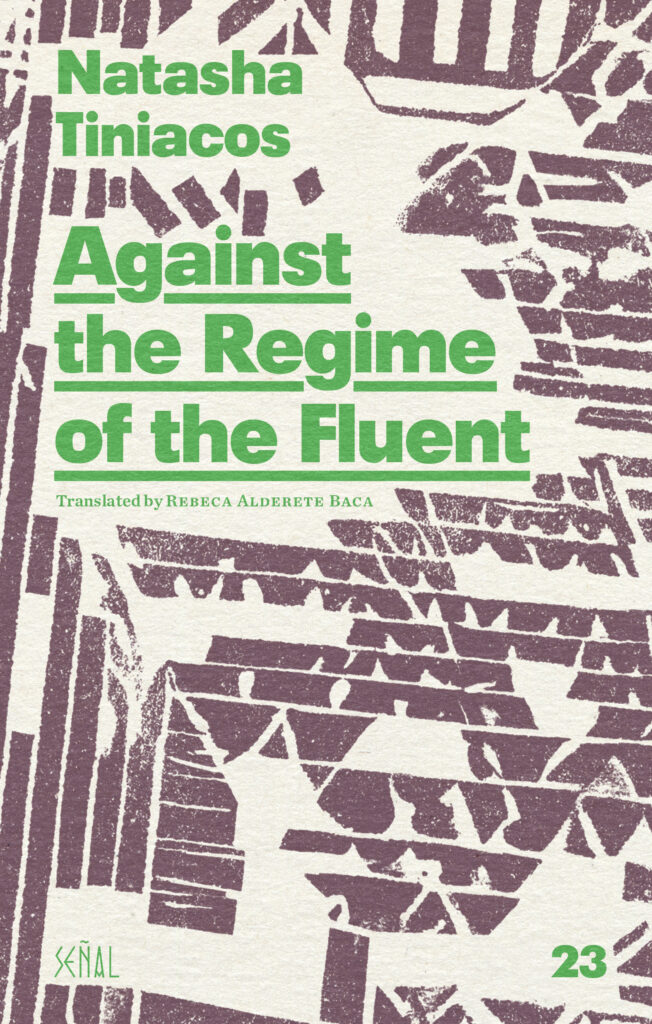
How long can you hold your breath and follow a string to the bottom of a waterfall? Contra el régimen de lo fluido asks how you would fall knowing you must resist. These poems are mnemonic screenshots of the author’s request for affirmative asylum to relieve the individual’s fear of repercussions in her home country, fragments that dream of becoming ruins of a present still unfolding against the systems of power, (the) body, language or all the systems.
Lemonade: A Paranormal Investigation, Catalina Vargas Tovar, (Tr.) Juliana Borrero
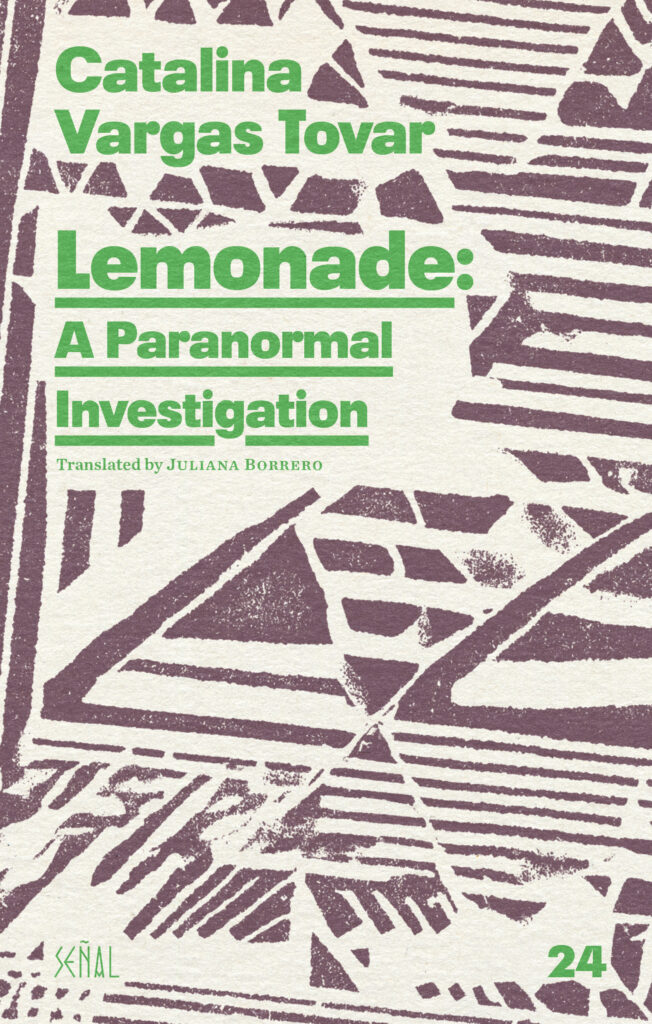
Sometimes poetry is an invitation to levitate. And from new perspectives to listen to the landscape that surrounds us, its claims, its promises, its charms. Lemonade: A Paranormal Investigation dives deep into the entrails of mountains, embodies the softness of shadows, intends to think from the darkness like seeds, and hopes to learn to see before language.
Catalina Vargas Tovar is a philosopher and poet that develops her research through editorial projects, delving into different aspects in book production such as collaborative work, the materiality of writing and the book as a space for experimentation.
I Want Something Other Than Time (special edition), Lewis Freedman
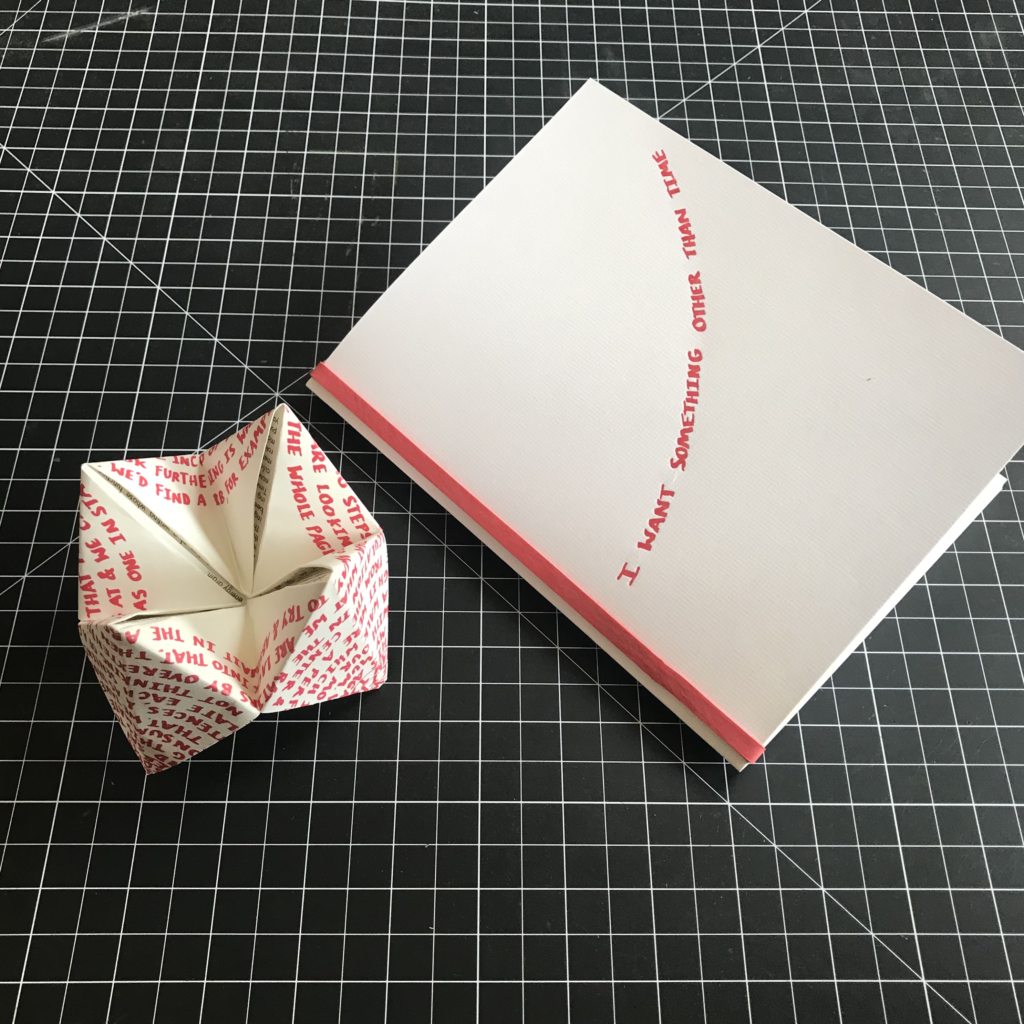
Across a series of sixty-four poems, each titled with the eponymous refrain, I Want Something Other Than Time worries the problem of self-identicality—the distance between the self and the self that recognizes the self—into the socio-political sphere as a problem of temporality, as the work of our shared subjects in perceiving and projecting pasts, futures, presents.
This special edition includes the handwritten chapbook as well as the foldable essay insert, A NOTE ON THE HANDWRITTEN EDITION OF I WANT SOMETHING OTHER THAN TIME.
Finishing Line Press
Too Short to Box with God, Matthew Johnson
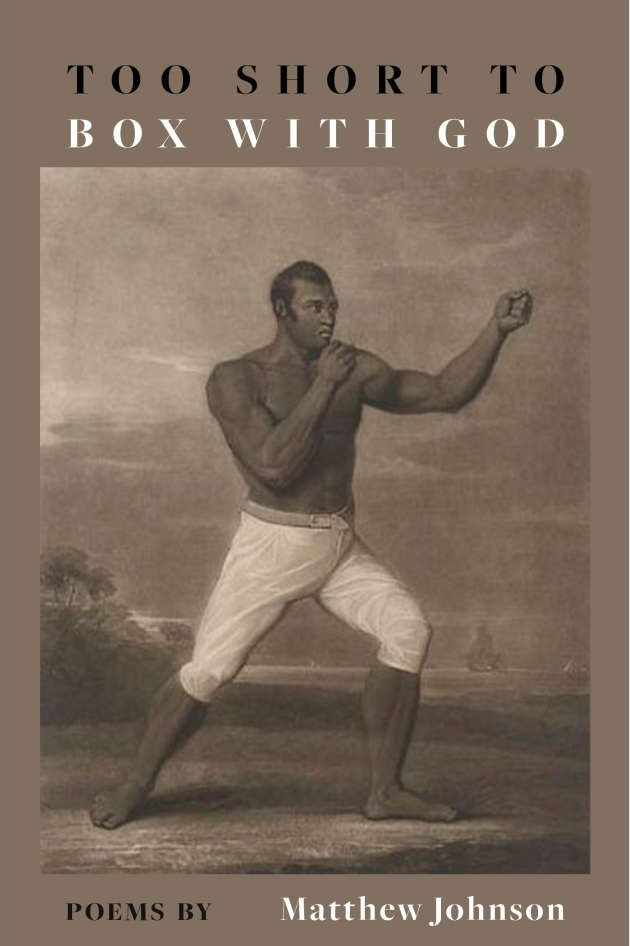
Too Short to Box with God is a poetry collection that draws on the vast history of one of the world’s oldest sports to both celebrate and reflect on the sweet science of boxing and the fighters who have not only dedicated their lives to the fight, but have embodied cultural and socio-political importance that goes beyond the ring. Ranging from the works of ancient literature, such as Homer’s Iliad and The Bible, to towering and transcendent fighters like Joe Louis and Muhammad Ali, Too Short to Box with God examines how boxing, across time, has intersected with entertainment, literature, politics, race, and religion. Evoking the action, atmosphere, controversy, and sympathy of a complicated and violent sport, Too Short to Box with God, explores the impact of boxing in a poetic form like no other collection has done before.
In the Mourning Grove, Susan Auerbach
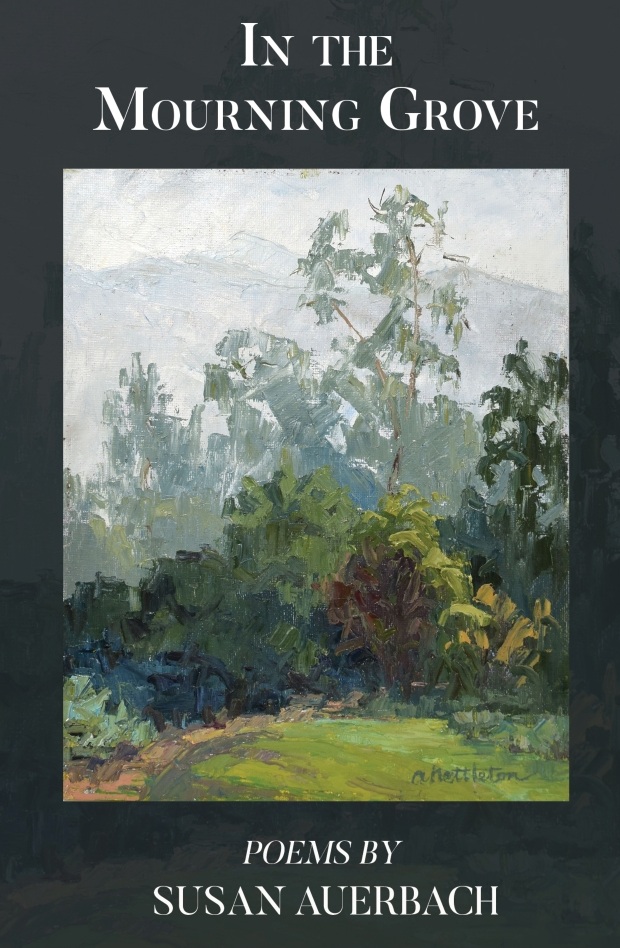
In the Mourning Grove is a collection of poems in the key of grief that will resonate with anyone who has experienced loss. From a young girl’s yearning for siblings to a middle-aged mother’s lament for her adult child, the poems bring lyricism, music, and spirituality to moments of heightened emotion. The first half of the book consists of poignant elegies to and about the poet’s son, Noah, who died by suicide at age 21. The second half explores a range of sorrows, from parents’ divorce and early deaths to various losses of innocence and the passing of a beloved pet. The book is a life-affirming beacon and companion for the grief that many of us carry, an invitation to venture without fear into—and beyond—the mourning grove.
Aurora Uteralis, Katie Mihalek
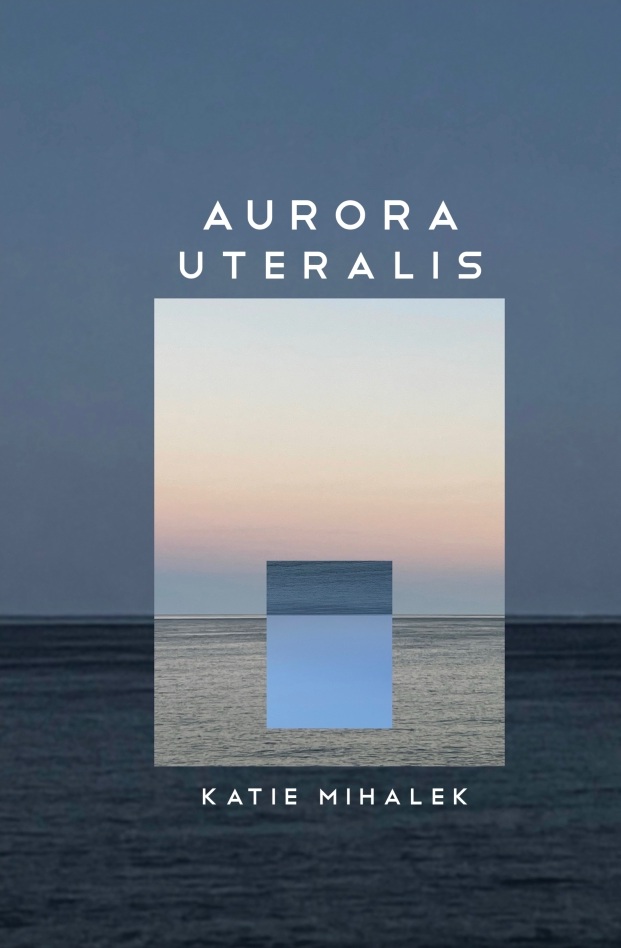
Aurora Uteralis blurs the lines between the plant and the body as poems deliberate on sexuality, autonomy, and the different facets of emotional intimacy we carry. The poems simultaneously live within the world of the body, not shying away from imagery of stretch marks and vaginal fluid, while bridging this inner world to one of shriveled sage plants, clamshells, and cockroaches. Unexpected pairings of body and nature ask us to look more closely at ourselves through the growth, decay, and dirt of life around us. From neurons and maple leaves to electrocardiograms and lightning, these poems are intensely personal as they discover how the body is seen, loved, and grieved through environment.
A Kind of Flourishing, Angela Griner
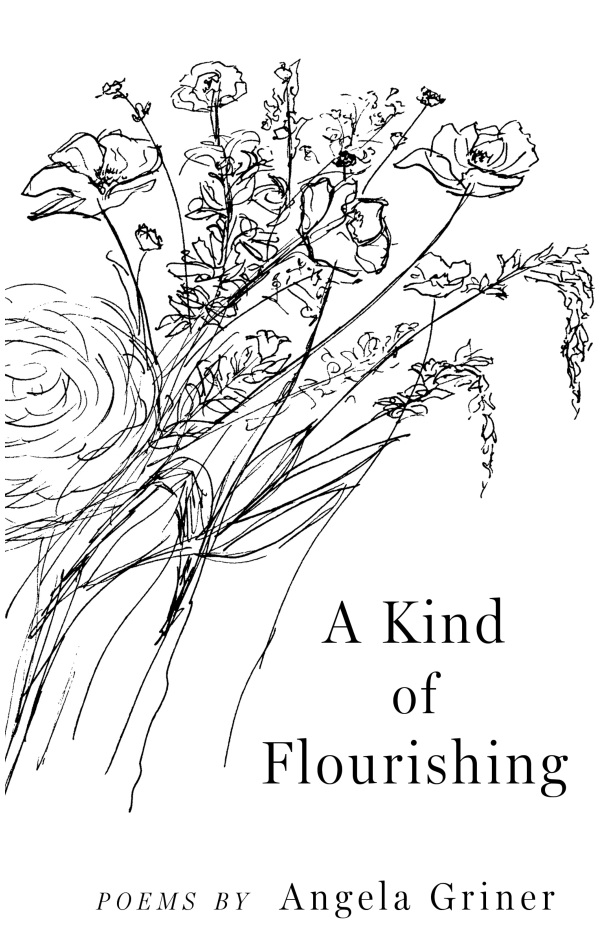
A Kind of Flourishing contains contemplative poetry, steeped in the art of paying attention to backyard miracles and the lessons we learn from the nature surrounding us, no matter the setting, urban, rural, suburban, or on a remote trail somewhere. Each poem is a practice in consenting to the complex mix that life and nature bring of astounding love, devastating grief, and magnificent joy.
Some Moments in a Gentle War, David MacRae Landon
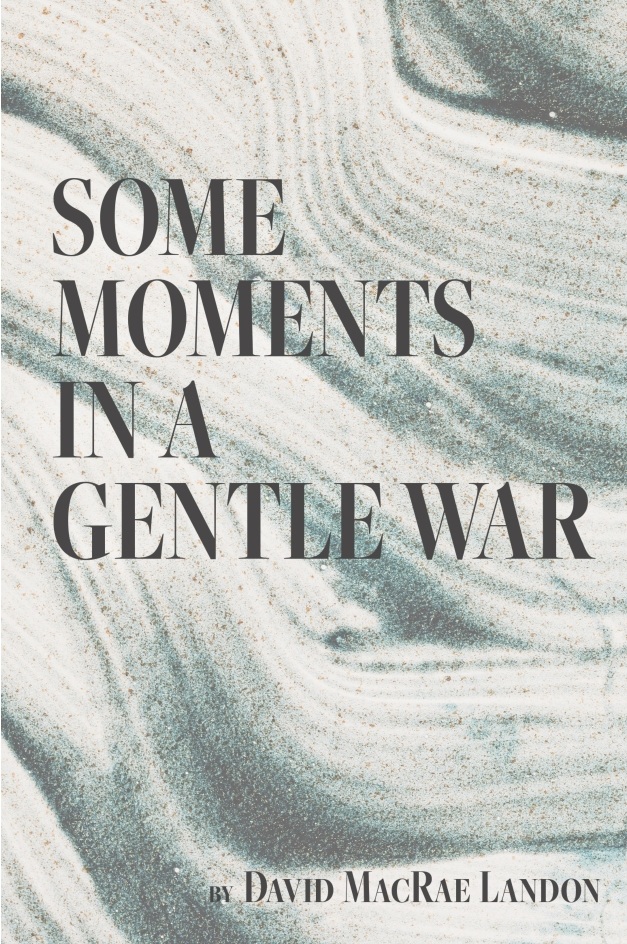
This collection of poems borrows its title from a line of the second poem, “Kleos, or Fame”. “Kleos” also begins the story of the war, “gentle” because it is a commitment, at times a struggle, to care: for each other and our world, from moment to moment, from day to day. To fight the gentle war is to live in opposition to another war, a war associated in several of the poems with “history”: reckless ambition, abuse of power, indifference to suffering, violence. There are moments—at times mysterious—when we feel the gentle war may win, so let’s celebrate, let’s remember those moments. In iambic pentameter? It is a meter usually more vigorous than gentle. But there are moments we want to remember and celebrate with vigor!
Blood Sonnets, Elizabeth L. Hodges
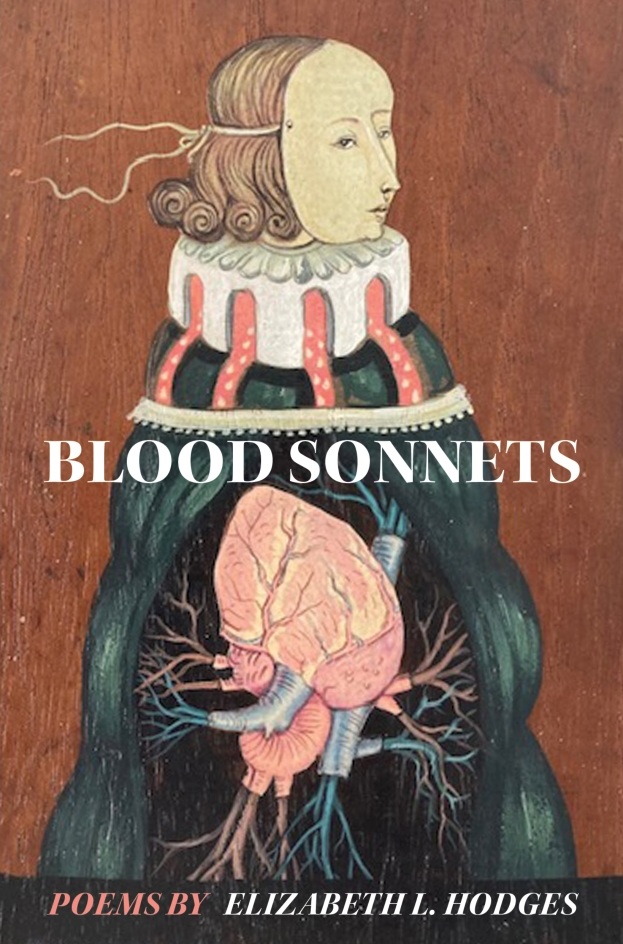
In these exquisite, finely wrought sonnets—twenty jewel-like portraits of famous female figures—Elizabeth Hodges plumbs the depths of a dazzling range of feeling, from the emotional torrents of rage and fear to the keenly observed sensations of artistic creation and enchantment. A meditation on themes of female oppression and empowerment, Blood Sonnets incarnates and transforms the voices of twenty female figures, from the famous and infamous (Catherine the Great; Lizzie Borden) to the mythic and mysterious (Athena; Jane Doe), bringing to life a panoply of intense experience in crisp, vivid miniature. By turns fierce, heartfelt, sly, and haunting, these poems illuminate as they interrogate, and offer a fresh, nuanced perspective on history, a woman’s place, and the human condition itself.
The Bounce, Karl Michael Iglesias
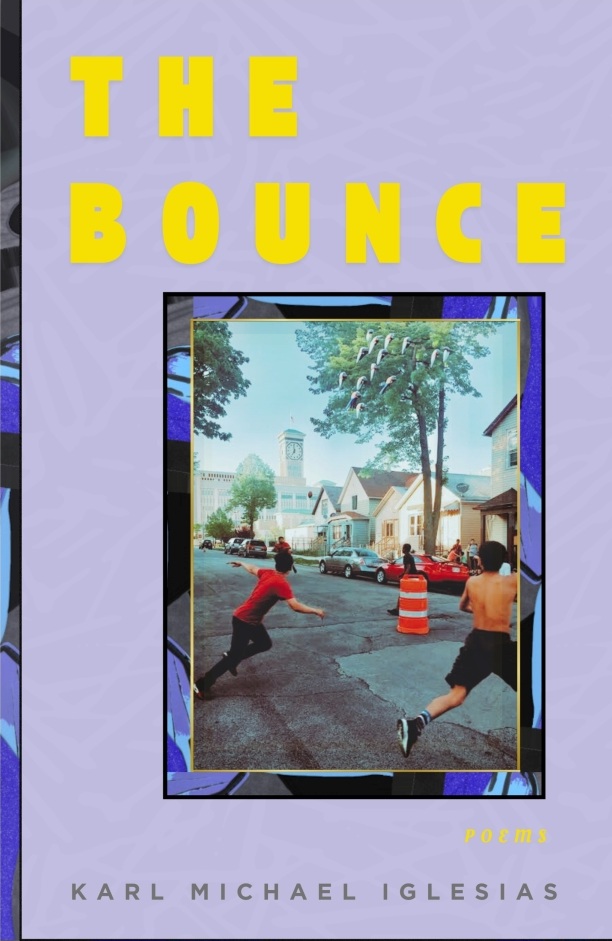
The Bounce, the new poetry collection by Karl Michael Iglesias, is an intimate poetry collection that gathers love, grief, and memory-echo as a remedy for the growing pains we all deserve.
Karl Michael Iglesias is a Puerto Rican actor, director, and the author of Catch a Glow. His work can be read in Florida Review, RHINO Poetry, Haymarket Books’ Breakbeat Poet Anthology, Westchester Review, Sierra Nevada Review, and Brooklyn Review. Karl lives in Brooklyn, New York.
Seeing—In A Small Town, Pasquale Trozzolo
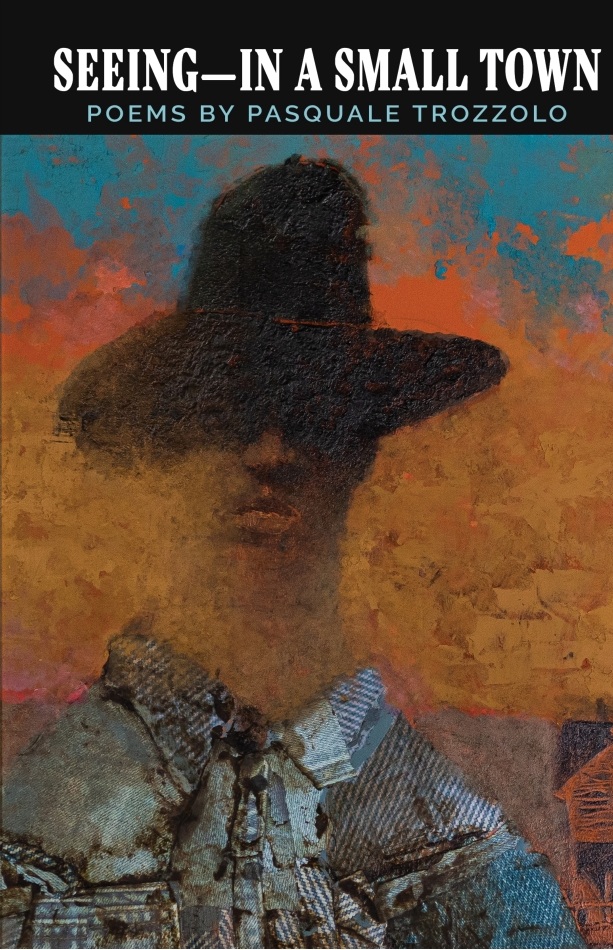
Seeing—In A Small-Town takes us on a journey through small-town America. The poetry chapbook is a collection of vignettes, each based on a different person or group of people that our visiting explorer encounters during their travels. Each vignette is a story the explorer imagines based on the person’s appearance, behavior, and interactions with others. Through these stories, the reader is given a glimpse into the lives of small-town Americans and the daily routines that make up their lives. The book explores judgment, assumptions, and the importance of seeing beyond the surface. The poems remind us that every person has a story and that we should be slow to judge and quick to listen. We never know what burdens someone carries or what joys they celebrate. Everyone is more than just their appearance; we should take the time to get to know them before forming opinions.
Prisonegg, Jonathan Pessant
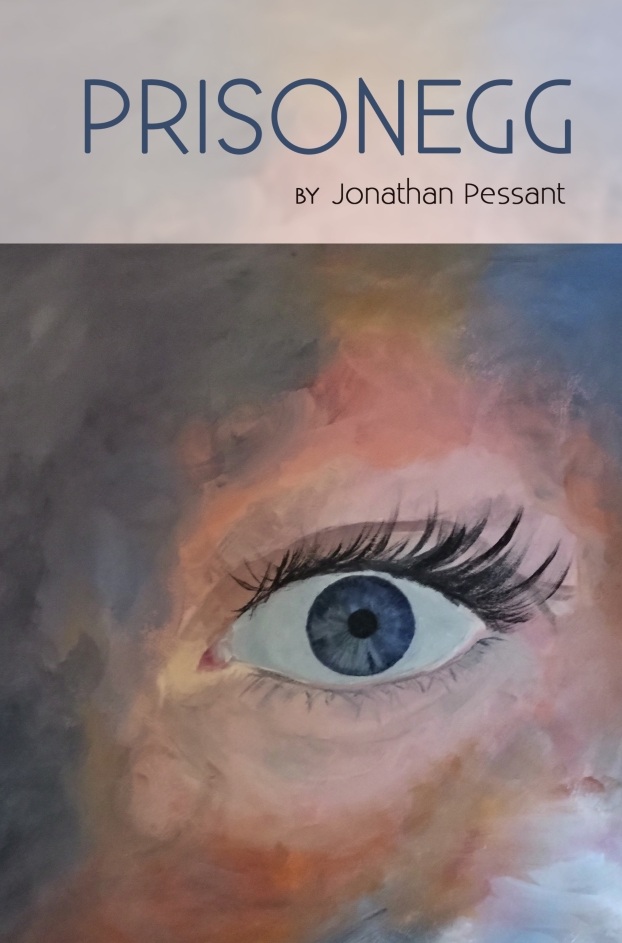
Remembering is a prison. The poems in Prisonegg are a timeline, from contract signing to basic training, from military prison guard to the complexity prison of marriage, then divorce. They are memories of the good, the bad, and the nearly forgotten. While Fort Leavenworth and the United States Disciplinary Barracks is the central setting for the narrative, it lives beyond fact and fiction, where past can be a prison but also eggs us into being ourselves.
In The Throes Of Beauty, Kevin D. LeMaster
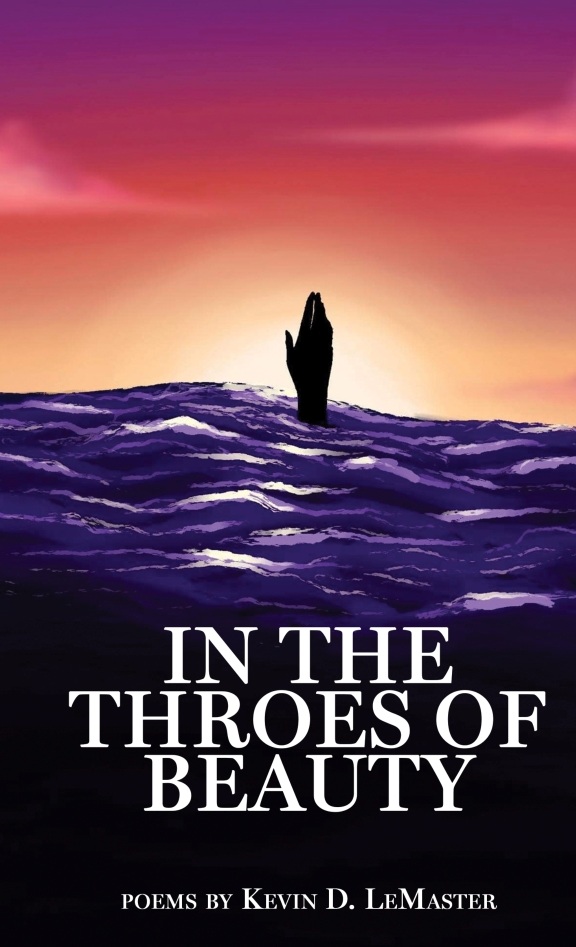
In The Throes Of Beauty includes poems of place and what it is like growing up in Appalachia. Some poems deal with grief, love and sorrow while other are centered around the land, lost ways of life and how the Ohio river interacts with all these factors. It is a cohesive collection of song in the grace of despair.
Kevin is the author of the chapbook Mercy (Arroyo Seco Press, 2023) and has been nominated for a Pushcart twice and once for a Best of Net.
The Hundredth Hour, Kitt Healy
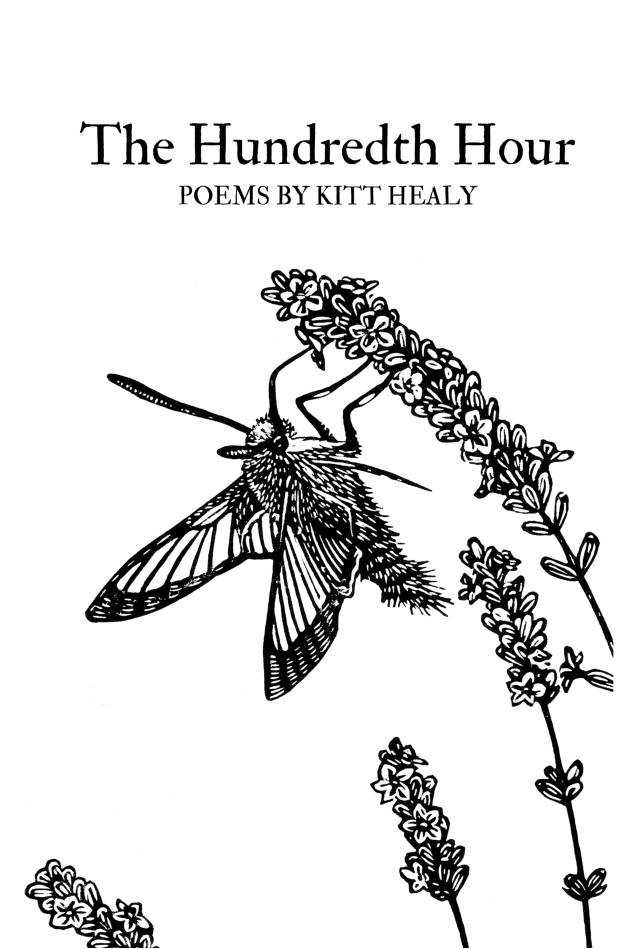
The Hundredth Hour explores the experience of becoming a mother, in all of its delirium, joy, magic and brutality. The poems are both heartfelt and absurd, particular and universal. They both describe and embody the deep weirdness of suddenly arriving on the strange planet that is parenthood, where the socks will never match, the hours both race and stall, and a kind of unhinged love sets up shop at the center of one’s self, changing us for better, for worse, forever.
Everything is Ghosts, Tyler Robert Sheldon
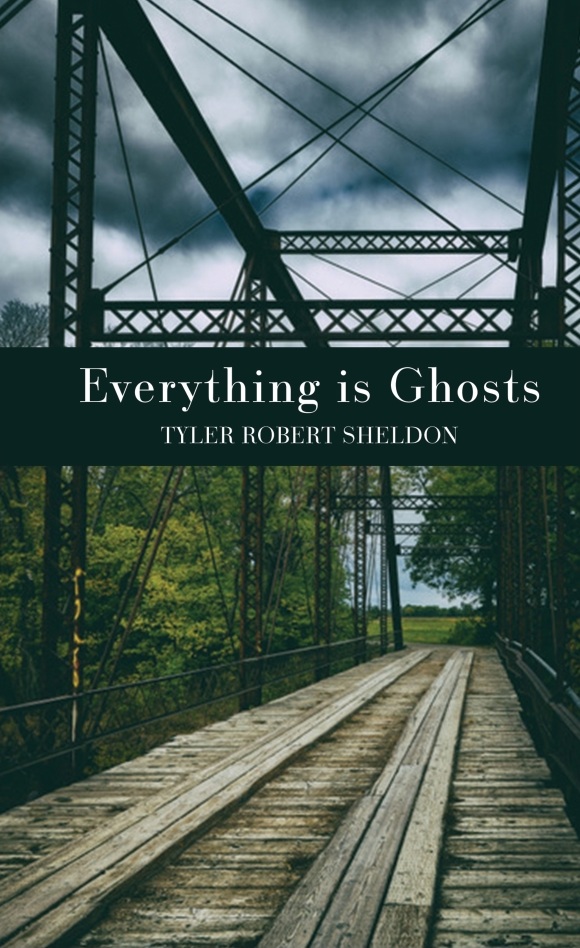
Everything is Ghosts is a meditation on the fragility of new independence, and a juxtaposition of personal histories-in-progress with the troubled histories of a college town’s residents—many of whom are dead. This collection’s poems follow a group of college friends through their experiences with burgeoning adulthood, as they reckon with where they’ve been and whom they might be turning into. Whether braving a dorm haunted by the spirit of a basketball player and nebulous “shadow people,” daring each other out onto a murder-scene bridge at midnight, witnessing ghost hunters in the campus library, or wrestling personal hauntings like vehicular accidents, drug use, the after-effects of polio, and the passage of time, the players in Everything is Ghosts learn to keep one eye open at all times. As they create, carouse, and hold each other up, they learn that being haunted can have more than just one meaning.
Things We Carry, Stacy Julin
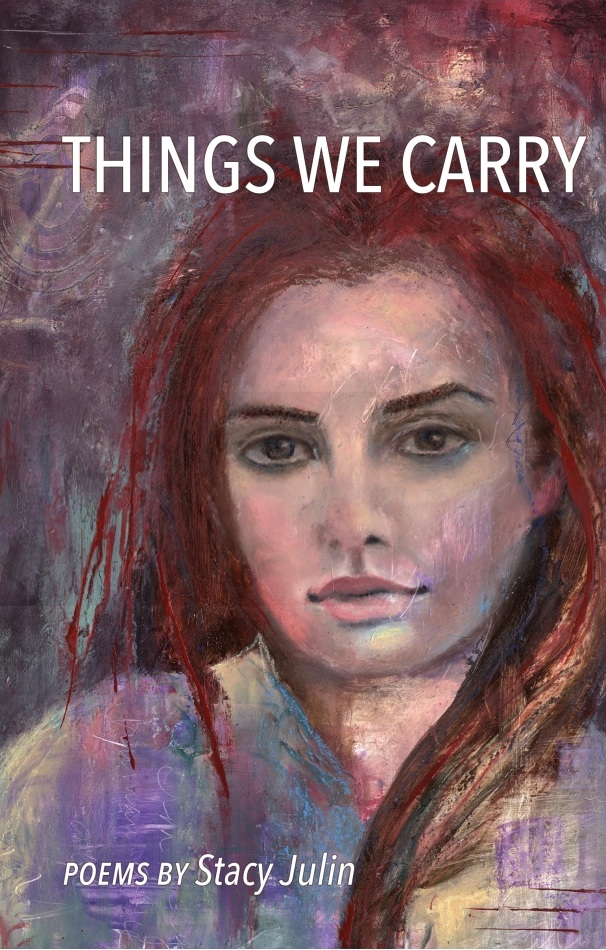
Things We Carry is a collection of poems that explore vivid memories, and treasured things that are lost and kept in this world. The writer also wonders about the future, and how she yearns for good things for her children. She wishes not to burden them with things of the past. It is the tender love and joy of life, the weight of the heart, and the ache of the still unknown to come.
Stacy Julin’s work has been published in Oyster River Pages, Pirene’s Fountain, Sky Island Journal, Southern Quill, Word Fountain, and has been nominated for a Pushcart Prize.
Language Like Water, Nancy Gerber
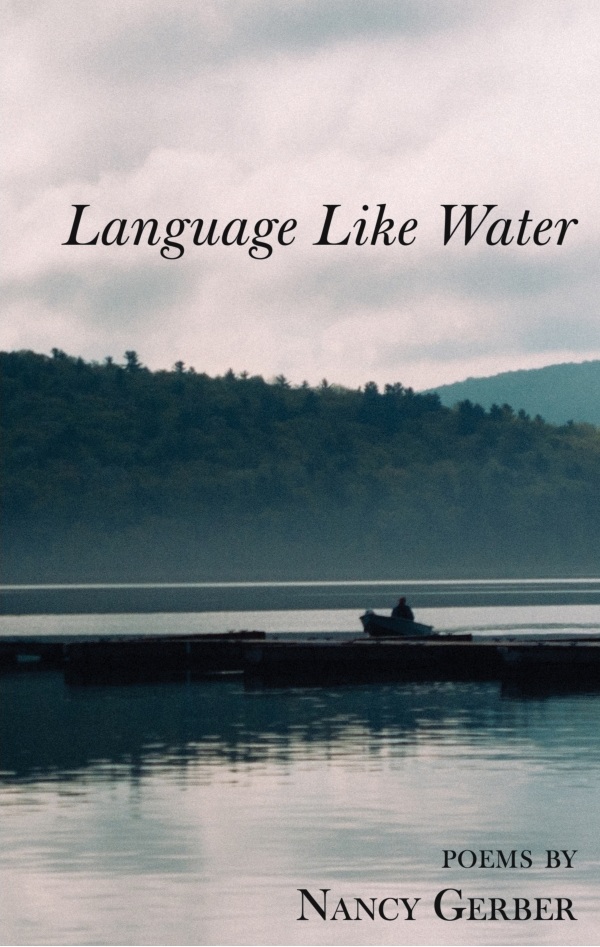
The poems in Language Like Water speak to conflicts, challenges, and connections in a daughter’s relationship with her mother over the span of a lifetime. The poems resonate with longing and struggle as the daughter seeks to understand and restore her complicated mother, an enigmatic figure who struggles with depression. Ultimately the daughter recognizes her own strengths as she acknowledges and inscribes moments and memories of sharing and connection.
Where We Went Through, Nancy Nowak
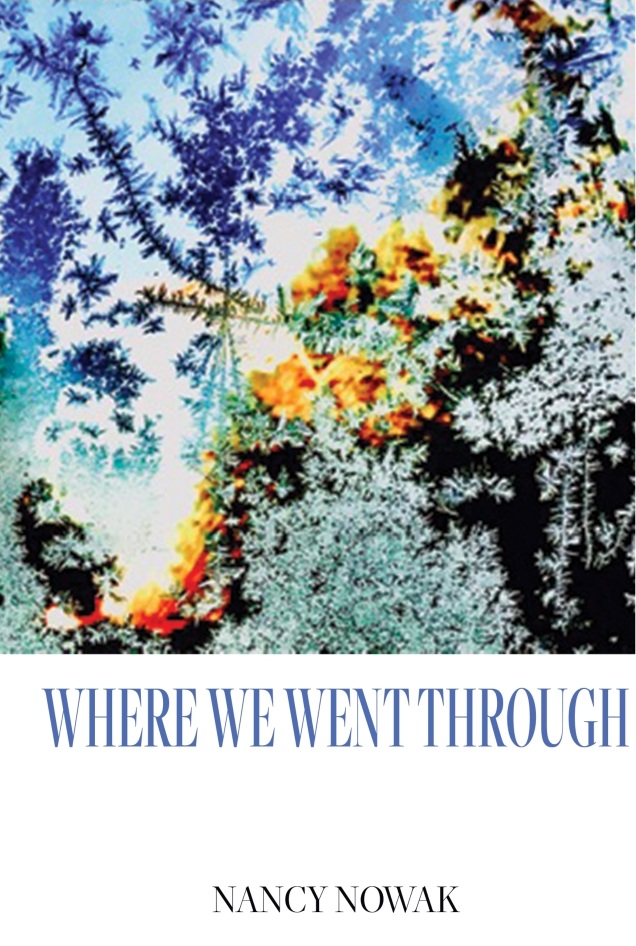
Nancy Nowak’s chapbook Where We Went Through traces a journey through landscapes physical and emotional: Two people begin the journey, but after the loss of one, the other who remains enters sorrow alone.
In poems rich with striking imagery and deeply felt language, the two experience ease and joy, exploring cities, countryside, and the edge of the sea. As the woman, on a bluff above the Great Salt Lake, watches her beloved walk within his labyrinth, the Spiral Jetty, she is moved by their brief separateness. Too soon, his sudden illness and death rend their bond. The place where she now lives burns with her grief.
The Gathering, Morgan Baylog Finn
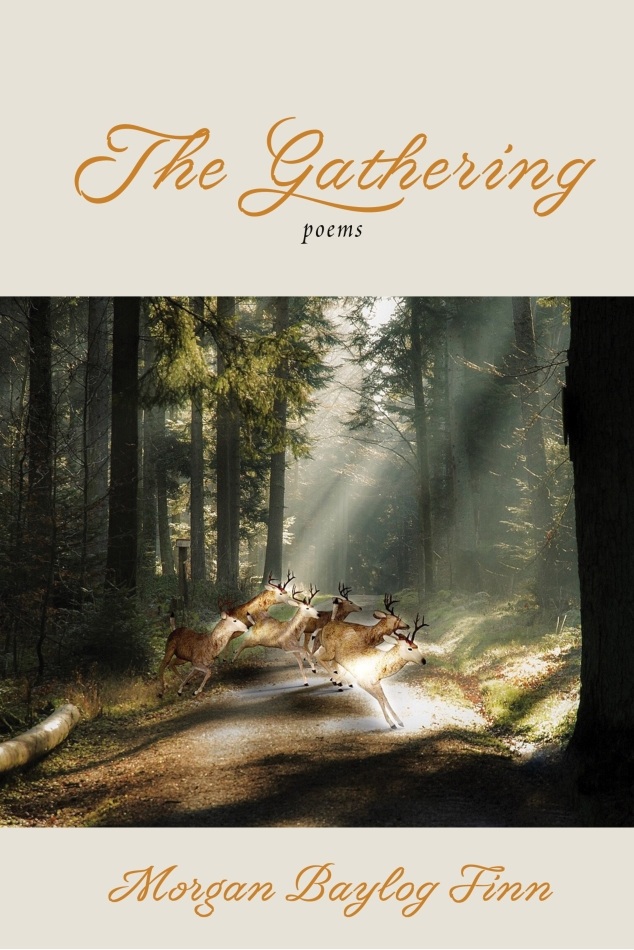
I rounded the corner at The Modern and there it was: Picasso’s Guernica mural blown up from small reproductions in art history books to cover a gigantic wall. I was instantly encapsulated in the wantonness of war, unable to move or speak. Never had a painting affected me so profoundly as it came crashing in: the terror I felt as a girl hiding under my school desk during drills. Would I ever see my family again if bombs actually fell?
Rays of Light and Darkness, Raymond Turco

Rays of Light and Darkness by Raymond Turco is a profound exploration of shifting moods, personal history, and collective memory. This evocative chapbook of poems navigates the contrasting landscapes of light and darkness, reflecting the ever-changing human experience amidst a background of blending world cultures. From the immigrant struggles depicted in the section “From the Old World to the New” to the whimsical yet poignant reflections in the section “Hearty Laughs and Heavy Sighs,” Turco masterfully captures the ebb and flow of our emotions. Many of the poems delve into themes of identity, family, and illness, portraying a spectrum of moods that oscillate between hope and despair. The material of the book traverses various settings, from the depths of the sea to the heights of the constellations. Through the vivid stories of characters like the haunting protagonist in “Cosimina,” Turco paints a rich tapestry of moments that highlight both the darkest shadows and the brightest rays of light in the human condition.
The Secret Side of Dorset Street, Eileen Brunetto
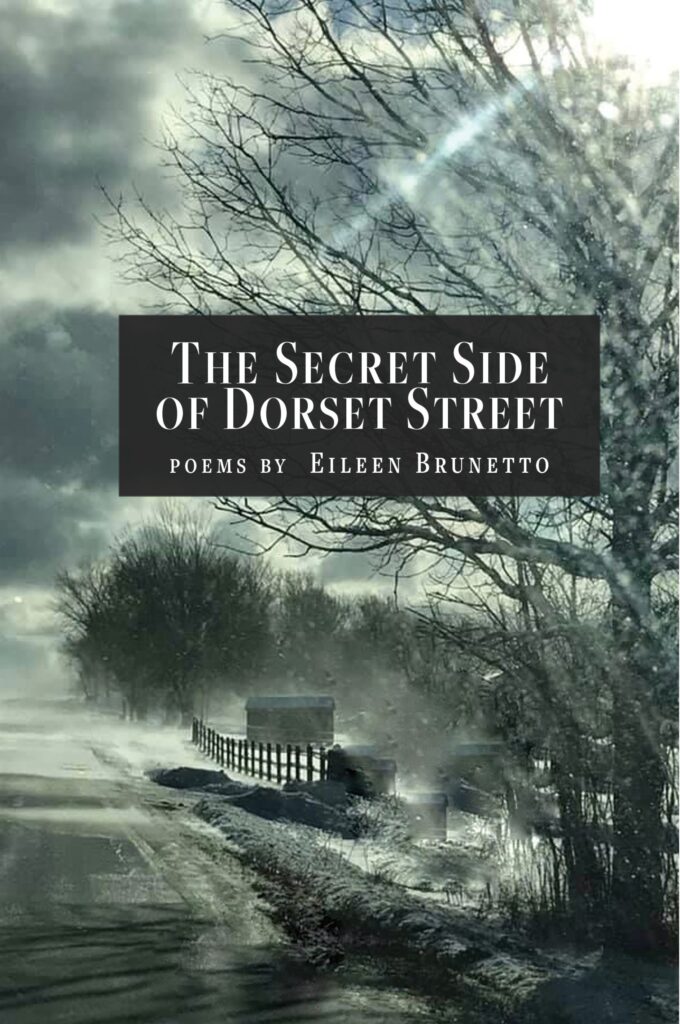
Eileen Brunetto’s The Secret Side of Dorset Street, speaks of solitude and intimate observations of earth and the mystery of time with hope, cynicism, and humor. As a child growing up in a large family, she walked the nearby woods where she developed a deep appreciation of quiet space – opportunity to think and grow. Trees and the natural environment cultivated curiosity and peace. Her writing reflects upon relationships; she questions and laments human disregard of landscape and resources, while reminding us of our need for nature’s innate calm, beauty, and essential sustenance.
Bottlecap Press
a vivid dreaming, Mal Virich
Vendor
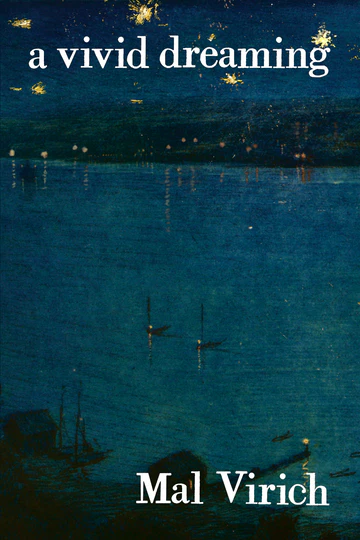
In 21 poems of varying form and length, a vivid dreaming explores sleep and meta-poetry, in a melatonin-fueled journey through the unconscious. Such questions as: What does it mean to fall asleep? Who are you in your dreams? Are we, as a collective, worthy of love? are not so much thoroughly answered as pondered, deeply and abstractly.
At times existential and at other times humorous, a vivid dreaming builds on the poetic tradition of extremely conventional writers like Patrick Stump of Fall Out Boy and Raphael Bob-Waksberg of the Netflix original series Bojack Horseman. Whether “filthy” or “falling asleep,” poetry readers might find something to describe their state of being, somewhere between the abyss and the sunrise.
Poor You, Ed Taylor
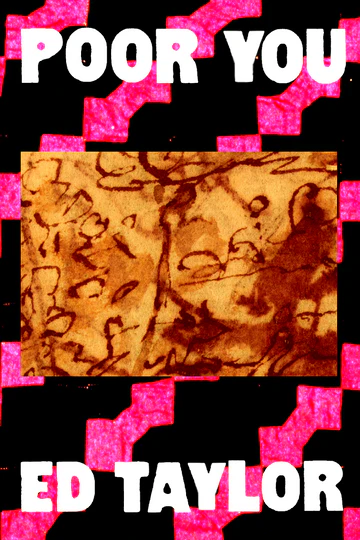
Poor You is a result of bumping into the world, with the result a bruise-colored but painless bloom.
Or it is analogous to a pearl, that beautiful defense mechanism of the oyster against irritants it swallows as a result of being alive.
Or this collection is just a small yawp, a kind of baying at the moon—just talking back.
Through humor, pop culture, absurdism, experiment, anger, sorrow, and joy, Poor You documents an ongoing attempt to understand the shocks and astonishments of being just aware enough to see how things are but not so presumptuous as to presume to know what to do about the Big Enchiladas: love, death, and what humans do to each other and the world.
heads held low, Corey D. Cook
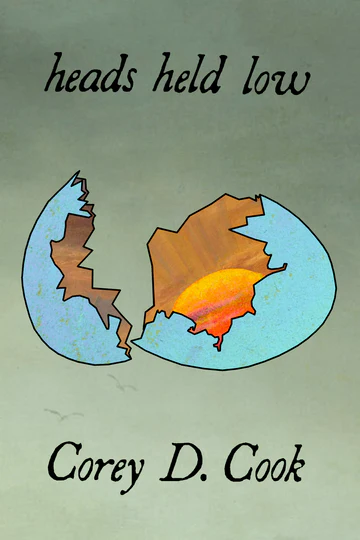
The 24 haiku and senryu in Corey D. Cook’s latest chapbook, heads held low, will usher you through the changing seasons. Interwoven throughout this small collection are also poems about the declining health and loss of the author’s elderly family members and friends.
These three-lined poems are concise, impactful, and imbued with feeling. Perhaps one of Corey’s favorite poets, Donald Hall, is to thank for this as Hall was often quoted as saying that he viewed poetry as a “school for feeling.”
Slowburn, Alivia Stonier
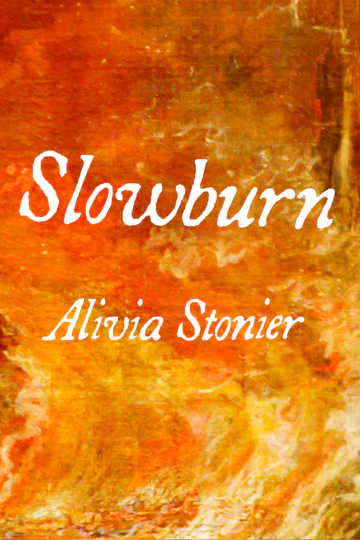
Slowburn takes you through what it’s like to be lit aflame and snuffed out again. Instinctive yet erratic the writing guides you through the smoke and mirrors of surrender and leads you out again.
Gnashing teeth, skin pulled back, and guts gone sour the collection is an exploration of intimacy when trusted in the wrong hands and words in the wrong ears. A collision of metal, a Tennis match played alone, and twigs grown only to burn, this collection is a flame growing slowly and a question of how to not go down in flames.
For the Best, Nia Mahmud
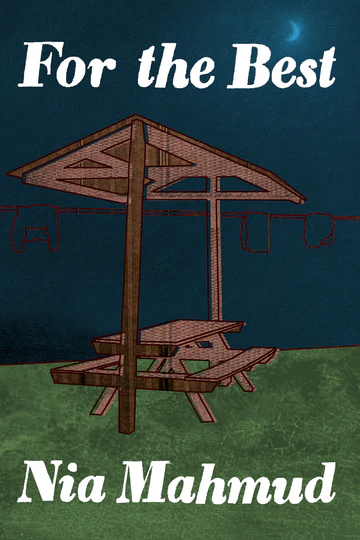
A landscape featuring coffee that’s only sometimes made the right way, ruptured pimples, and a burrow owl’s wormhole examines what it means to be told it’s all ‘for the best’. A phrase often offered as consolation in the aftermath of a big move, bad night out, or romantic rejection, it does little to soften any emotional blow. Both personal and relatable, these poems chronicle two years of hurting and healing in constant motion and competition with each other.
Hardly, Morrow Dowdle
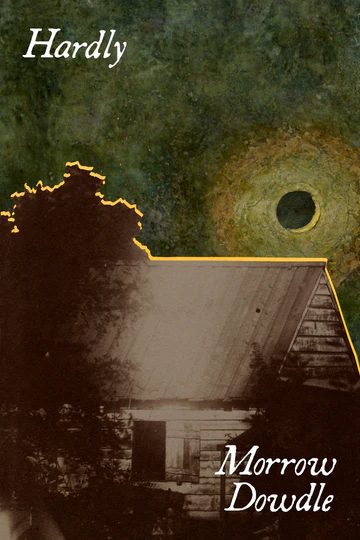
“The uninitiated (bless them!) so often think it begins / with a gaze gone awry.” So begins this spare, tender collection of poems by Morrow Dowdle. Identifying as queer and genderfluid, having spent time as both medical provider and patient, Dowdle seeks to address assumptions and misinformation around anorexia nervosa. Hardly takes the reader through a story-in-verse, both narrative and lyrical, about one individual’s struggle with food restriction, which begins as an attempt to control and make sense of childhood sexual abuse, rather than a desire to fit an aesthetic stereotype.
Shadow of Memories, Mia Bego
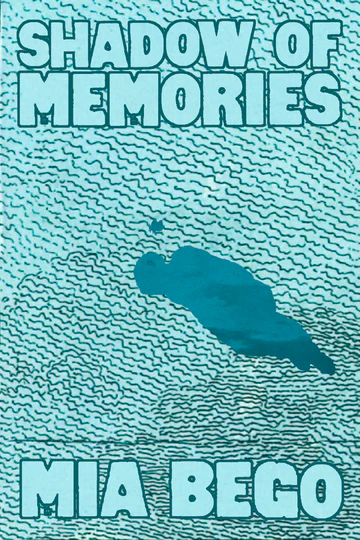
Each poem in this collection does not fit into a theme but rather is a reflection of a memory that arose a transforming realization. Here you will look through my lens and see things you haven’t before or rather you may see a part of yourself. Reflecting on your own memories, taking a deeper dive into your own mind.
In my chapbook Shadow of Memories the depths of human emotion through experiences are depicted by the simplicities of everyday life. The revelations found through the nature we inhibit, through our daily routine of rising and falling are explored visually. Letting your senses take you back to a place of familiarity, understanding how your past shapes who you are in the present.
Sixteen Years With Calvin, Robert Pegel
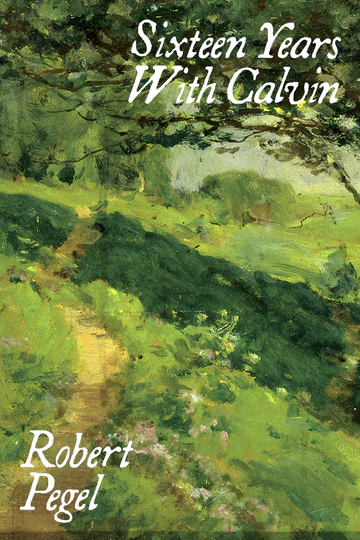
Robert Pegel is a husband and father whose only child, his son Calvin, died in his sleep of unknown causes at age sixteen. Robert writes about the fragility of life and the search for transformation.
This chapbook will take its audience on a grief journey from shock to hope and every emotion in between. Robert hopes readers will recognize themselves in his authentic voice. Since grief is universal, the words Robert chooses will resonate no matter where one is on their grief journey. Sixteen Years With Calvin is at times heartbreaking but ultimately confronts death and attempts to transform the pain left behind in its wake. This chapbook serves as a survival guide in dealing with loss.
For a Second I Was Years Ago, Juanita Fama Candelaria
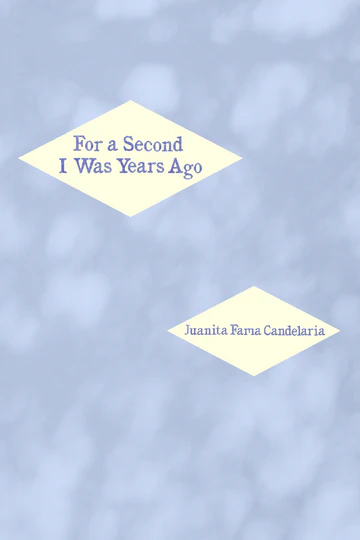
For A Second I Was Years Ago is a collection of hybrid poems and vignettes accumulated over the author’s 20s. What is the most important and preoccupying theme is the longing for connection– to people, to the world– and the complications that come with finding it.
And of course, there’s romantic yearning! And there’s going to the movies! And being at the beach! Swimming! Meditations on life and our confusing role in it! Feeling self-conscious every time you speak! Oh, youth.
After Forgiveness, Alayna Powell
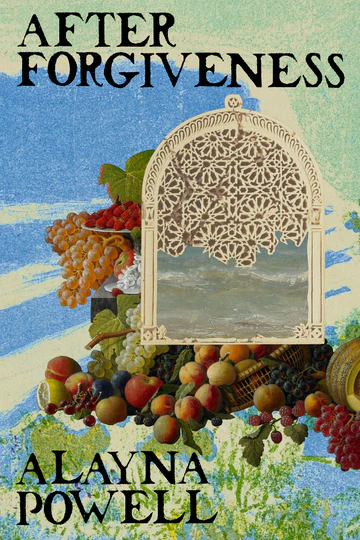
After Forgiveness is a testament to all that love takes and leaves behind. Journeying between past and present, obsession and spite, Powell’s poems meld dream with reality in an attempt to imagine an after. A mother heals from cancer. The drug use slows, and then stops altogether. But when it is all over, where do we put our toes, tongue, teeth? The anger that, by now, has turned to blame? What do we do with the love that lingers, pulsing, in an empty room? These poems turn to the spiritual world, to plants, to prayer, demanding answers.
Pisces in Pieces, Lian Villanueva Lansang
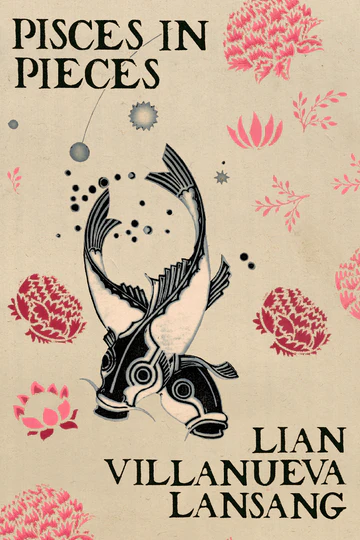
Pisces in Pieces is a collection of poems all written to “The Girl” that navigate the complexity of human emotion in a new relationship. The works, in no certain order, try to make sense of catching feelings/falling in love in the months leading up to when Lian left for Air Force Basic Military Training, the silence experienced in the months during BMT, and the heartbreak in the months following BMT.
In his debut chapbook, Lian does his best to capture everything he’s ever felt/still feels for The Girl from the closeness to the d i s t a n c e, to the joy and now empty silence that he finds himself sitting in.
Feeling Extremely Fatigued in California, Nick Minges
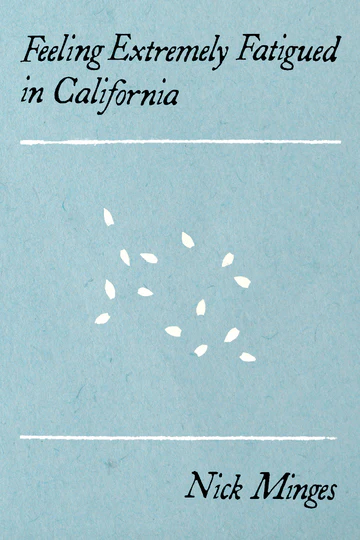
An expert mix of journal and elegy, Extremely Fatigued follows the thoughts, footfalls, and poems of our intrepid speaker through the dizzied weekend following the notice of a friend’s death. Minges’ work is a force of grief that leaves nothing out, from extinct internet message boards to taco places to pool halls, from Rimbaud and Keats to Sartre and Spider-Man. Through constant rain, plumbing disasters and sleeplessness, Minges pays respect to tradition while firmly rooting us in a syrupy and momentumless present. Exhausted, surreal, sarcastic, and musical, these poems interrogate reality, philosophy, art, and the self with a voice that rejects easy answers and meanders instead toward the possibility of song.
For Fear of Spontaneous Combustion, Alye Perryman
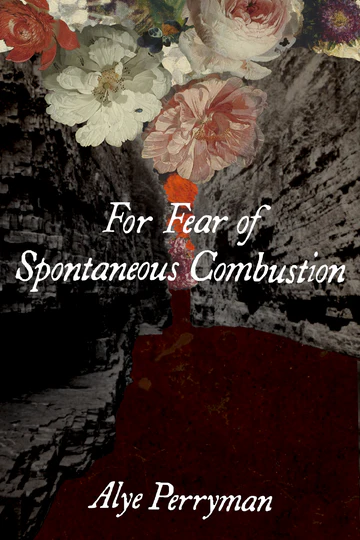
This is a collection of free-verse poetry that delves into the intensity of the human state. It ranges in topics from environmentalism to discrimination to mental health. This book starts with a sense of indignation which transforms into despondency and finally euphoria; it is intense, yes, but also celebrates the triumph and inherent light of the human soul. The settings consist of natural spaces, and the poems feature stigmatized but tenacious characters in the form of a nameless narrator.
Appalachian Hymn, Anna Chastain
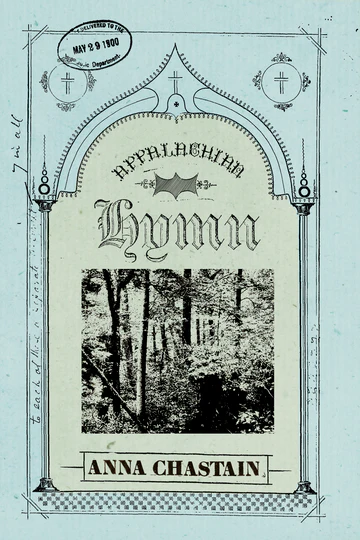
At its core, this collection of poems is an honest, down-to-earth love letter to Appalachia — celebrating its people, culture, beauty, and lore. It’s a bit reverent, a touch irreverent, at times strange, and completely authentic. These poems offer a glimpse into today’s Appalachia from the perspective of a young Appalachian who adores the area for what it is. Each piece captures a unique moment that can only be found in this area — from the glory of nature to the allure of bluegrass, to the invasive touch of progress that seeks to change the culture and its people.
Requiem for the Beekeeper, Katherine Leonard
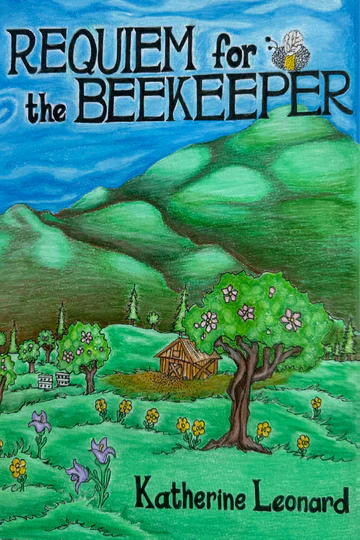
Requiem for the Beekeeper is a three-part harmony of the interdependence of nature, human nature and relationship from the universal to the intimately personal. The journey of joy and enslavement and nurturance and deceit is filled with music that plays through this work.
Love arising is no simpler than spring growth with challenges of weather and careening circumstance that shape lives. The openings and closings of the work travel through a panoramic scope to land softly on the personal entwining of family with humor with regret and with the deep rootedness of lives shared within the world that influences and enfolds them.
I Thought I Would Drown, Michael Hill
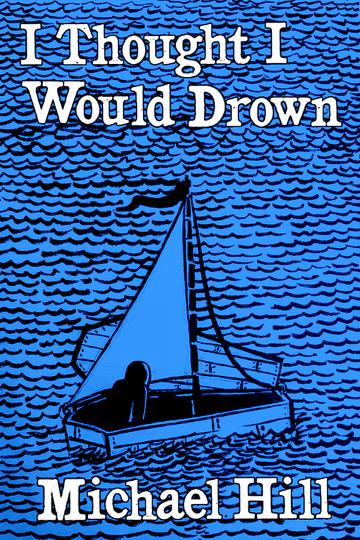
I Thought I Would Drown is a loosely narrative collection of poems following a wandering narrator through the southeast, from his home in the Appalachian Mountains to the islands of the South Carolina lowcountry. Along the way, he confronts the death of his father, the transient nature of love, and his fear of water.
Poems in this collection explore the heaviness of grief, the loneliness of depression, and the complicated nature of home. There’s also a poem about a pumpkin and one about a man in a coffin boat, if that’s more your speed.
Intake, K. Rose Dallimore
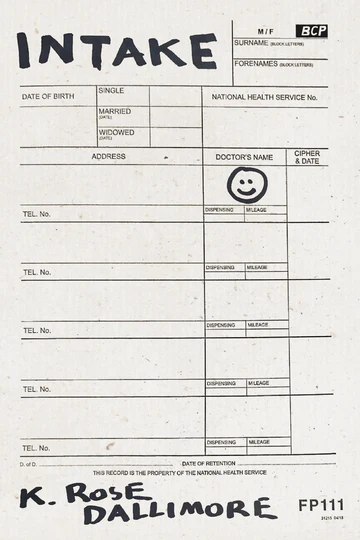
K. Rose Dallimore’s debut poetry collection outlines her experience with chronic illness, exploring the ways in which pain and disability intersect with love, agency, and ancestry. From the absurd horrors of the healthcare system to her necessary escape to dream worlds, Dallimore utilizes experimental forms to interrogate suffering. Even still, the collection evokes a sense of hope and resilience; of rebuilding after the end of the world.
Allergic to Sanity, Carter Hemion
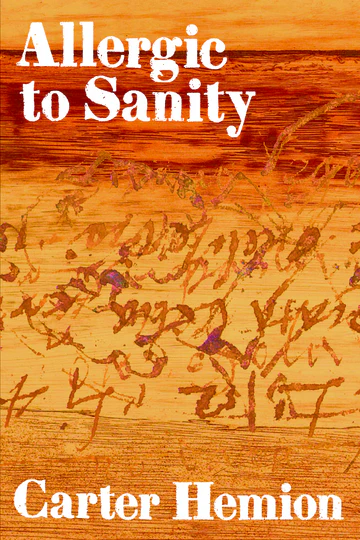
Under the pressure of perfection, Allergic to Sanity is a confession of unkempt and uncertain cognition. It cracks open a window into neuropsychiatric symptoms that straddle the borderline between physical and mental illness.
When undiagnosed and unmitigated immune dysfunction progresses from body to mind, it carries catastrophe on its back. Allergic to Sanity explores themes of hallucinations, delusions, impulsivity, depression, dissociation, anxiety, and acceptance. It shares the innermost fears and outermost hallucinations of a shapeshifting illness and the unbreaking resilience to move through it.
Autosarcophagy and Other Ailments of the Flesh, Nicholas Finch
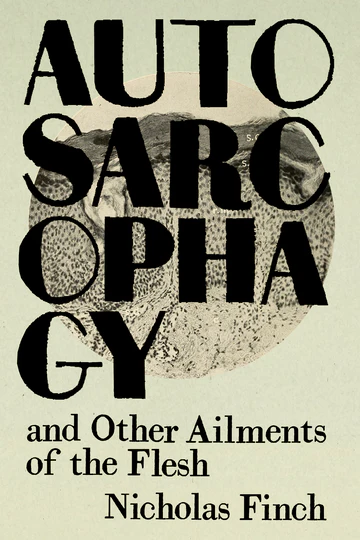
Autosarcophagy, or autocannibalism, is the practice of eating oneself. Autosarcophagy and Other Ailments of Flesh is a collection of prose and poetry in which its speakers and protagonists wrestle with the notion of what one’s own body is. Is the body a prison? Is it a tool? Perhaps a vessel to navigate the world and the people around us? Autosarcophagy is part investigation, part confession.
From prose poems and Shakespearean sonnets to villanelles and vignettes, this hybrid collection is a feast of literary forms both formal and experimental, as the texts wrestle out of the bounds of their own structures mirroring those characters inhabiting these stories who are barely contained within their own bodies.
Planeta: Wandering (stars), Joddy Murray
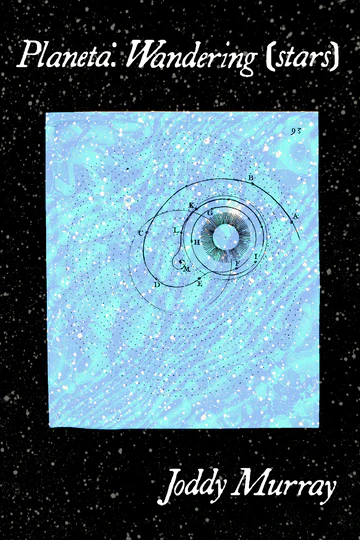
The ancient Greeks noticed certain “stars” that seemed to wander in the night sky as others stayed relatively fixed: planeta, or what many refer to today as the planets in solar systems. Greek mythology is the source of the names and stories of many celestial bodies and constellations. I derive inspiration for poems that connect mythology, the celestial, and the science we have come to understand in this era.
Many of the images and connections in these poems echo the wonder of our immanent existence on this blue ball, as well as the celestial stories and new discoveries (exoplanets, asteroids, comets). Occasionally, these poems draw from my experience. Some draw on connections to the stars and myths as common as our days of the week. These poems wander and lie beneath—peripatetic, sub-spaitial, illuminated.
Don’t see a poetry chapbook published between 11/1 and 11/30 here? Contact us to let us know!

Contents
PCR is calling for submissions of original poetry for the first time between Nov. 1 and Dec. 15. We’re also opening to submissions of poem excerpts from full-length collections. Read this post for details!
Check out new poetry books for the week of 11/5 from Querencia Press, Grid Books, Finishing Line Press, Fireside Industries, Princeton University Press, BOA Editions Ltd, Bloodaxe Books, Button Poetry, University of Pittsburgh Press, Persea, W. W. Norton and Omnidawn.
Chapbook Poem: copper by nat raum
Read the featured Chapbook Poem of the Month for November 2024, “copper” from salt box by nat raum, along with a few words from the poet.
Poetry Chapbooks (October 2024)
Check out our round-up of poetry chapbooks published in October 2024 by Two Sylvias Press, Yavanika Press, The Poetry Box, Variant Lit, Kith Books, Newfound, Black Lawrence Press, Diode Editions, Nine Syllables Press, Querencia Press, Bottlecap Press and Finishing Line Press.
Check out new poetry books for the week of 11/12 from Querencia Press, CavanKerry Press, Talonbooks, Finishing Line Press, Black Ocean, University of Calgary Press and University of Wisconsin Press.
Check out new poetry books for the week of 11/19 from Copper Canyon Press. Random House, Winter Editions, Books and Finishing Line Press.
Check out new poetry books for the week of 11/26 from Nightboat Books, Alice James Books, NYRB Poets, Unicorn Publishing Group and Finishing Line Press.
Check out new poetry titles for December 2024 from Green Linden Press, After Hours Editions, White Stag Publishing, Anvil Press, Eulalia Books, Empty Bowl, The Song Cave, Variant Literature, University of Nevada Press, LSU Press, Bloodaxe Books and Tupelo Press.
Poetry Chapbooks (November 2024)
Check out our round-up of poetry chapbooks published in November 2024 by Kith Books, Kernpunkt Press, Finishing Line Press and Bottlecap Press.
Chapbook Poem: After Tragedy by Caiti Quatmann
Read the featured Chapbook Poem of the Month for December 2024, “After Tragedy” from Yoke by Caiti Quatmann, along with a few words from the poet.
Review: The Two Hearts Inside Us by Jill R. Burkey
“Jill R. Burkey dares to question in her chapbook, The Two Hearts Inside Us, because ‘questions breed possibility.'” Read the full chapbook review by new PCR contributor, Shelli Rottschafer.
